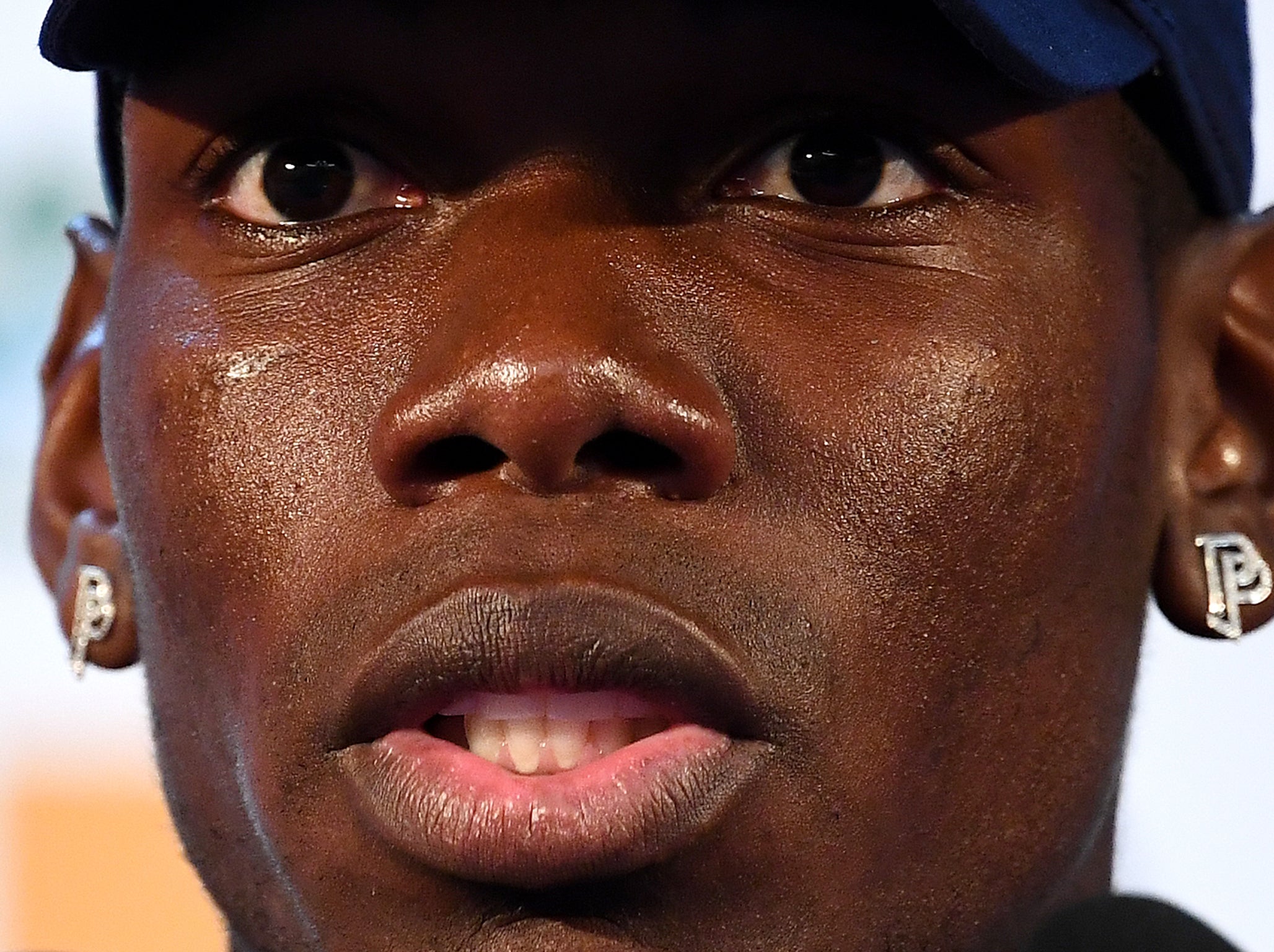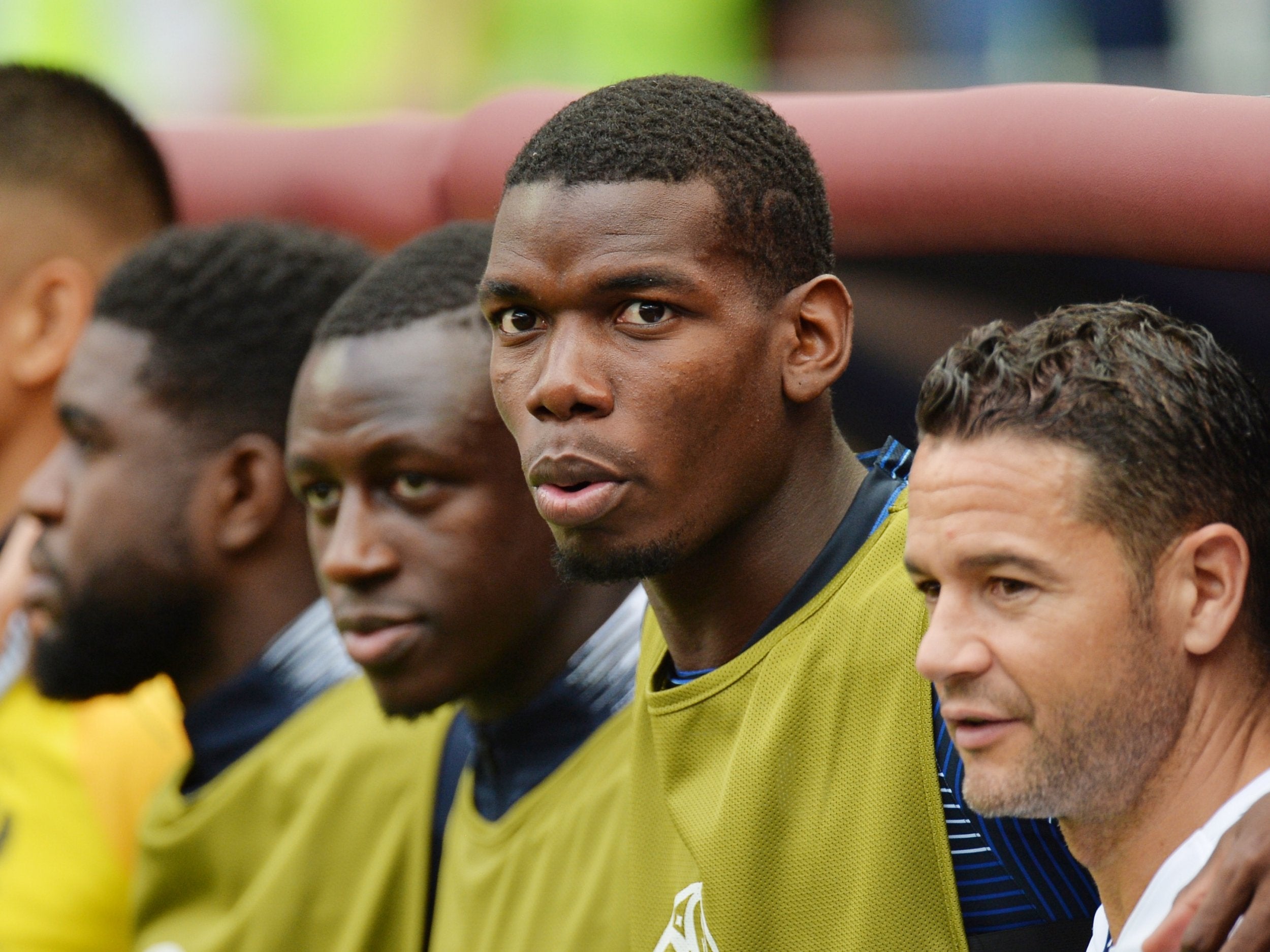World Cup 2018: Why once again, there is one rule for Paul Pogba and another for everybody else

Your support helps us to tell the story
From reproductive rights to climate change to Big Tech, The Independent is on the ground when the story is developing. Whether it's investigating the financials of Elon Musk's pro-Trump PAC or producing our latest documentary, 'The A Word', which shines a light on the American women fighting for reproductive rights, we know how important it is to parse out the facts from the messaging.
At such a critical moment in US history, we need reporters on the ground. Your donation allows us to keep sending journalists to speak to both sides of the story.
The Independent is trusted by Americans across the entire political spectrum. And unlike many other quality news outlets, we choose not to lock Americans out of our reporting and analysis with paywalls. We believe quality journalism should be available to everyone, paid for by those who can afford it.
Your support makes all the difference.Let’s play a quick game before you start reading the rest of this article, or at least before you blithely scroll past the first couple of paragraphs to the first picture and then get back to the rest of your Twitter feed. Let’s pretend – just for a moment – that you have no idea what this story is about: that you didn’t read the headline, didn’t case an eye over the stand-first and didn’t look at the picture, or video, or whatever.
You have no idea what the following few hundred words are about. Got it? Nice – now if you’re still here, read this:
“As I said, this is maybe my last [World Cup]. I really want to enjoy this and to forget all of the criticism, all the whispers from behind. What only matters to me is what is happening on the pitch. I’m here to give everything for this jersey, for my team, for France. I really want to win this World Cup. But I am realistic, we don’t know if I’ll be called up, maybe other players will be better than me.”
Good, inoffensive, slightly-bland stuff, right? Football talk: proper standard stuff. The kind of paint by numbers platitudes – focusing on events on the pitch: tick. Giving everything for the shirt: tick – that you could quite well imagine any of the 736 players currently running around Russia coming out with. Something literally any player would say.
Except that – for a wide array of different reasons – Paul Pogba isn’t just any other player. And as a consequence, the above answer wasn’t taken as an unpresuming soundbite by a footballer determined to shut out the noise and concentrate on his game, but as an ultimatum, a threat: a moody pledge to retire if things did not begin going his way. “He’s very happy and motivated – I don’t think it’s going to be his last World Cup,” a rather baffled Didier Deschamps confessed only a few hours later.
There are of course footballing reasons for all of this extra attention, for the vivacity with which his words were poured over by fans and media alike. After all, he’s the fourth most expensive player in the history of the game and a Hollywood megastar for club and country alike. Fair enough.
But then there is also the other stuff, the subtext and implication which lingers just beneath the surface like an abscess. He hangs out with Drake and Chad Johnson. He has 23.6m Instagram followers. He flies his expensive barber around with him and enjoys switching up his style. He presents MTV Music Awards. He’s black.
And if this all sounds like a depressingly familiar story, it’s because it is: Raheem Sterling has gone through something very similar in this country, resented for his wealth and supposed ostentatious behaviour by the same crop of newspapers and section of society that steadfastly refuse and even endorse the wealth collection and behaviour of the white middle class.
There are further similarities. Influential sports daily L’Equipe has frequently faced criticism for targeting Pobga, lambasting him for everything from his performances to wearing flip-flops to team meetings (within hours, #claquettesgate was inevitability trending). Turns out that tension between the media and players isn’t a uniquely English affliction.

In Pogba’s case, it does not much help that he is currently in the midst of a perceived drop in form, which makes the current attention on his performances – both on the pitch and sat behind a desk at a press conference – all the more intense. Yet even here there is more going on than meets the eye. Pogba was poor in the first-half against Australia but instrumental in the second. He was one of the best players on the pitch against Peru. And he was directly involved in all three of France’s goals in these games.
Naturally the big story ahead of the Denmark game was that he had dropped to the bench for the final group stage game. But so were Kylian Mbappé and captain Hugo Lloris, as Deschamps shuffled his pack before the Round of 16 begins this weekend.
And did France play better without him? No, is the simple answer. This was again the curiously ineffective Deschamps side that we are already well acquainted with, with a new-look three-man midfield of N'Golo Kanté, Steven Nzonzi and Thomas Lemar struggling to truly impose themselves in a ponderous ninety minutes. If anything, France looked worse for Pogba’s absence.

He will almost certainly return to their starting XI for Satuday’s match in Kazan. The hope is that he can shrug off the criticism and continue performing in that curiously inconspicuous way when the full glare of the world’s spotlight is upon him.
Whether he is playing or not, Pogba is among the most criticised players in the world: unfortunately that is unlikely to change either at this World Cup or the next.
Join our commenting forum
Join thought-provoking conversations, follow other Independent readers and see their replies
Comments